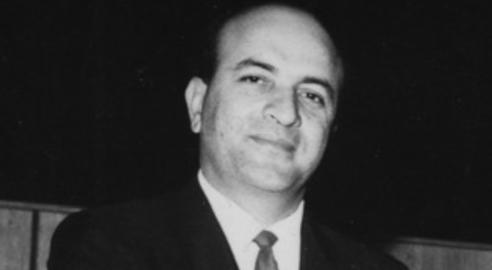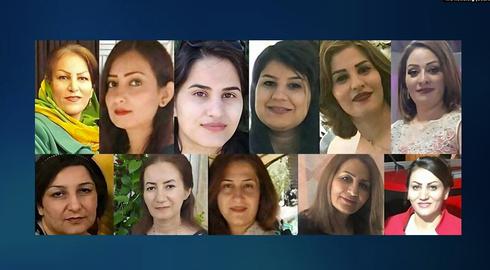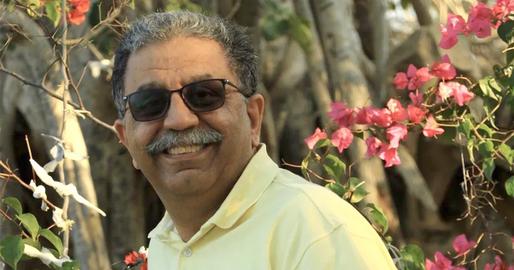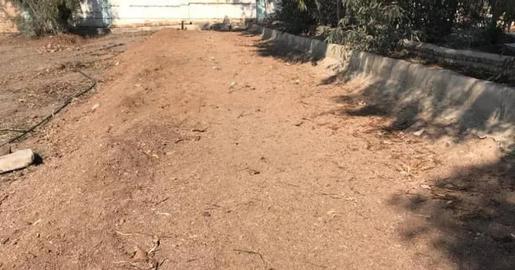Iranians of all backgrounds have together built Iran, regardless of their personal opinions, religion, or ethnicity. In a series of reports, IranWire looks at prominent personalities from Iran’s ethnic and religious minorities who made major contributions to the country’s progress. If you know of such figures and their services to Iran, you can share it with us by emailing [email protected].
Bahador Haghjoo was born on August 6, 1925, in the city of Shiraz to a Muslim father and a Baha’i mother. His father Mohammad was not a religious fanatic and Bahador freely chose the Baha’i faith when he came of age.
Haghjoo completed his primary and high school education in Shiraz and was a top student. He was also interested in poetry and music and could play violin masterfully as a young man.
After receiving his high school diploma, Haghjoo continued his education in engineering at Abadan School of Technology, which was later renamed Abadan College of Technology and then Abadan Petroleum University of Technology.
After Haghjoo began his studies, he won a scholarship granted by the Anglo-Iranian Oil Company (AIOC), which controlled the oil industry in Iran. The company sent him to the United Kingdom for a five-year course in mechanical engineering at the University of Birmingham. Upon graduation, in 1951, he returned to Abadan; in March of that year, Iran’s parliament, under the popular prime minister Mohammed Mossadegh, voted to nationalize the AIOC and its holdings. The departure of foreign oil industry experts from Iran meant that their jobs were given to Iranians, including several young graduates from the University of Birmingham. Haghjoo, who enjoyed teaching, became an instructor at his old college in Abadan as the head of the engineering group.
In 1955, Bahador Haghjoo married Shahla Mottahed, a Baha’i from Shiraz. The young couple lived in Abadan for two years, until Shahla was admitted to the UK’s University of Manchester. The couple went to Manchester in the summer of 1957. Shahla continued her, in chemistry, and Haghjoo also completed a one-year course in chemistry and received a master’s degree from the University of Manchester. After receiving his degree, he was invited to teach at the university’s Institute of Science and Technology. He also used the opportunity to get his PhD.
Presidency of Abadan Institute of Technology
In 1965, the National Iranian Oil Company (NIOC), which had replaced the Anglo-Iranian concern, invited Bahador Haghjoo to return to Iran as the president of Abadan Institute of Technology (AIT) which, by that time, had expanded and had become an advanced institute in the oil industry. Abadan’s oil refinery was the biggest in the world and the NIOC, under the presidency of Dr. Manouchehr Eghbal, later the last Pahlavi Shah’s prime minister, had invited prominent oil experts, in Iran and abroad, to join the company and contribute to the development of Iran’s oil industry.
Bahador Haghjoo returned to Iran after receiving the invitation – he was eager to go home and to serve at his old college. Two years later, his wife Shahla, who had stayed behind in the UK to write her PhD, also returned to Iran with their first child Rouhi and joined the university faculty.
Haghjoo’s time as president of AIT is remembered as a period of flourishing and growth. New courses in petroleum engineering, refining and exploration, as well as courses in management and accounting, were introduced. After three years of fulltime studies, students could also benefit from a year of practical experience in various sectors of Irani’s oil industry. They graduated with a master’s degree and most of them were hired by the NIOC.
One of Haghjoo’s most important actions was to accept women students at the college. Only men had been accepted before – now however women were able to apply, and many would also be hired by the NIOC after graduating. Haghjoo did the same for foreign students.
Dring his tenure, Haghjoo did much to raise the scientific standards of the college by bringing in experts, consulting colleagues in the UK, and inviting some of them to teach at AIT. He also invited Iranian experts working in the United States to join the AIT faculty – many of whom chose to do so.
Leaving Iran
In 1971, Haghjoo and his family returned to the UK and he joined a team at the University of Manchester in a research project on pollution.
Haghjoo and his wife were active members of the United Nations Association (UNA) in Manchester and nearby Stockport. The UNA is a non-governmental organization in various countries that aims to enhance the relationship between the people of UN member states and the United Nations, to raise public awareness of the UN and its work, to promote the UN’s goals, including sustainable development, supporting human rights and various humanitarian activities. For the rest of his life, Bahador was the secretary and the director of UNA’s Stockport branch. Starting in 1987, he and his wife hosted an annual international banquet at their home to gather donations for charity and, in the 30 years during which this event was held, they raised thousands of pounds sterling, most of which was donated to UNICEF for its humanitarian activities. The UNA granted a lifetime membership to Bahador and Shahla Haghjoo for their efforts.
And starting in 1987 and with the support of the bishop of Stockport, the Baha’i community in the city founded an interfaith group that met in the Haghjoo’s home, and still does, every six to eight weeks. Every summer, the couple would host a banquet for this interfaith group and their guests.
Bahador Haghjoo passed away in 2018. More than 200 people from other religions attended his funeral ceremonies. In a message of condolence, a deacon of the Church of England wrote: “There is a hymn that enumerates the seven divine gifts to the soul. These gifts are wisdom, perception, prudence, fortitude, erudition, piety and fear of God. All these gifts were visible in the life Bahador.”





















comments